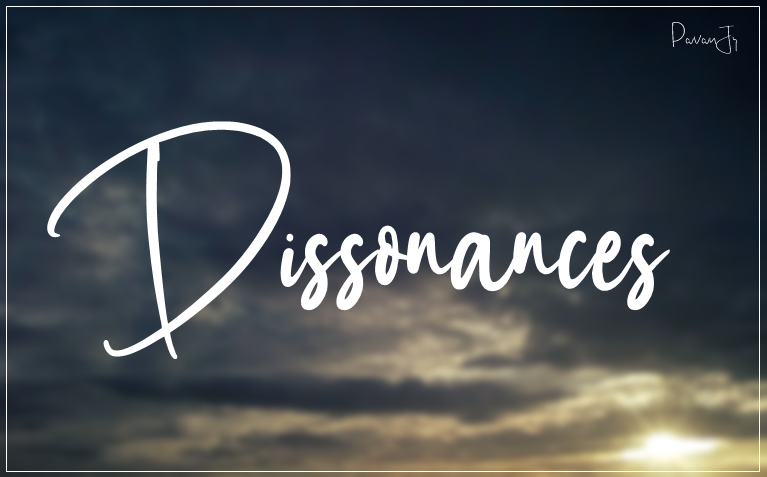

''The girl of the combs had to tear her voice because she knew that she was being listened to by exquisite people who did not ask for form, but for marrow of forms, pure music with a succinct body in order to remain in the air'' García Lorca. What is this pure music that offers marrow of forms, that allows the Andalusian singer to stay in the air? Cante jondo, no wonder it is called that way.
When Aristotle speaks of art as mimesis or ''imitation,'' music does not fit this definition well. However, he recognizes that tragedy has its origin in music, for it goes back to the authors of the dithyrambs, that is, the chant in honor of Dionysus, but it grows to become a form of its own, and part of its development consists precisely in diminishing the importance of the chorus and giving the first role to the dialogue. (Poetic, 1449a).


Nietzsche (or Niche, as I call it) states::
Music and tragic myth are, in equal measure, expressions of the Dionysian aptitude of a people, and inseparable from each other. Both come from an artistic sphere that lies beyond the apollonian; both transfigure a region in whose pleasant chords both the dissonances and the horrible image of the world are extinguished (...) If we could imagine an incarnation of dissonance - and what else is man? - this dissonance, in order to live, would need a magnificent illusion that would spread a veil of beauty over its own being (1978: 132:133).
According to Niche (Nietzsche), the evolution of art is linked to the duplicity of the Apollonian -represented in painting or sculpture- and the Dionysian -represented in music-, a contrast that generates the artistic work of the Attic tragedy. Or more precisely, the Dionysian artist would identify with pain and contradiction, and would produce music, which in turn would create reflections, images around him, ''like sparks''-for example, painting, sculpture or lyric poetry-which, when they reach their maximum development, are called tragedy.
For Aristotle, music is one art among others that enters and leaves tragedy without a trace. For Nietzsche, it is the origin of tragedy and, moreover, of all forms of art.


The dithyrambs have been lost. They were probably improvised songs -which Archilochus claimed to know how to conduct when his entrails had been fulminated by the wine-, so that only conjectures can be made about its sound. However, López-Pedraza, affirms that flamenco and jazz - relatives of flamenco and initially improvised music played after funerals - are two current exponents of Dionysian music. I dare to include also the gypsy music played in Hungary, and Mexican music. And I say the latter with good reason: while we were listening to rancheras, a Hungarian friend told me that those cadences reminded him of those of his homeland. Thus, except for Mexican music, and who knows, the Dionysian music that we could still listen to - music with black sounds, as García Lorca liked - comes from the East, from a people originally from India: the gypsies.
Gypsies seem to speak in their music a remote language in which there is neither the Eastern longing to transcend life nor the Western eagerness to deny death. They seem to live in a limbo: neither East nor West. Could it be their music that keeps them there? Could it be art?
Tragedy, cante jondo, jazz, Hungarian music, all art and man himself do not belong exclusively to the sphere of the rational. Therefore, when Aristotle defines man, although he is "right", he is wrong; not from a technical point of view, but because there is too much light in his statement. Or rather, Aristotle makes us indeliberately wrong. He, who admired tragedy, knew the limits of his assertion; for he was Greek.


Man is a rational animal only if both terms are given equal importance. Man is a paradox, and if he were not, he would lack the most sacred thing: the spark from which art arises, the glory of his misfortune. Of the shadows, it would be more appropriate to call it: the incarnation of a dissonance that consoles itself in art.
Thank you very much for reading me, I hope you have a great weekend full of good energies. Blessings!









Come say hi via Lotus Chat or drop by our community - we'd love to welcome you!

Hive Banner by @doze
This is a heck of a thought provoking post here! Music and art are definitely important aspects of life and I’m not in the mental space to ponder on the philosophy of it all but it seems like music has more emotion than art does, at least in my experience. I do love art; paintings, sculptures and the like but it doesn’t provoke the same things for me as music does. Perhaps because music is sound and vibrations and that affects different parts of us where art is more visual.
I think they are different sensations, whatever the type of art is, we make up the name, and everyone has a different perspective of what art itself is. In contemplating it, the good thing about life is that there are many types of art, so it's up to us which one we perceive or which one we fall in love with, so to speak. I love all kinds of art, music is phenomenal, but I'm more open-minded and it's hard to explain which is better between music and literature, which are among my favorites.
Thank you very much for reading and commenting, it's a pleasure to see you here. :D